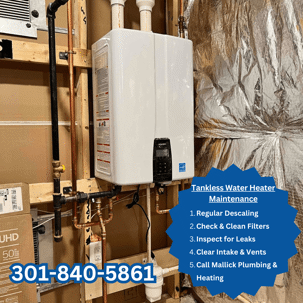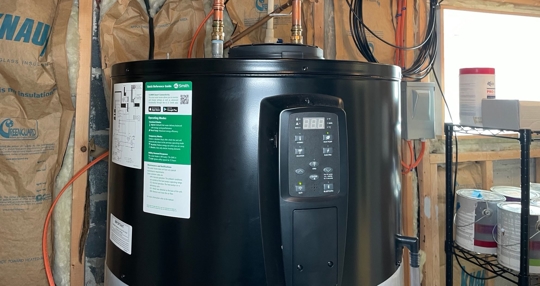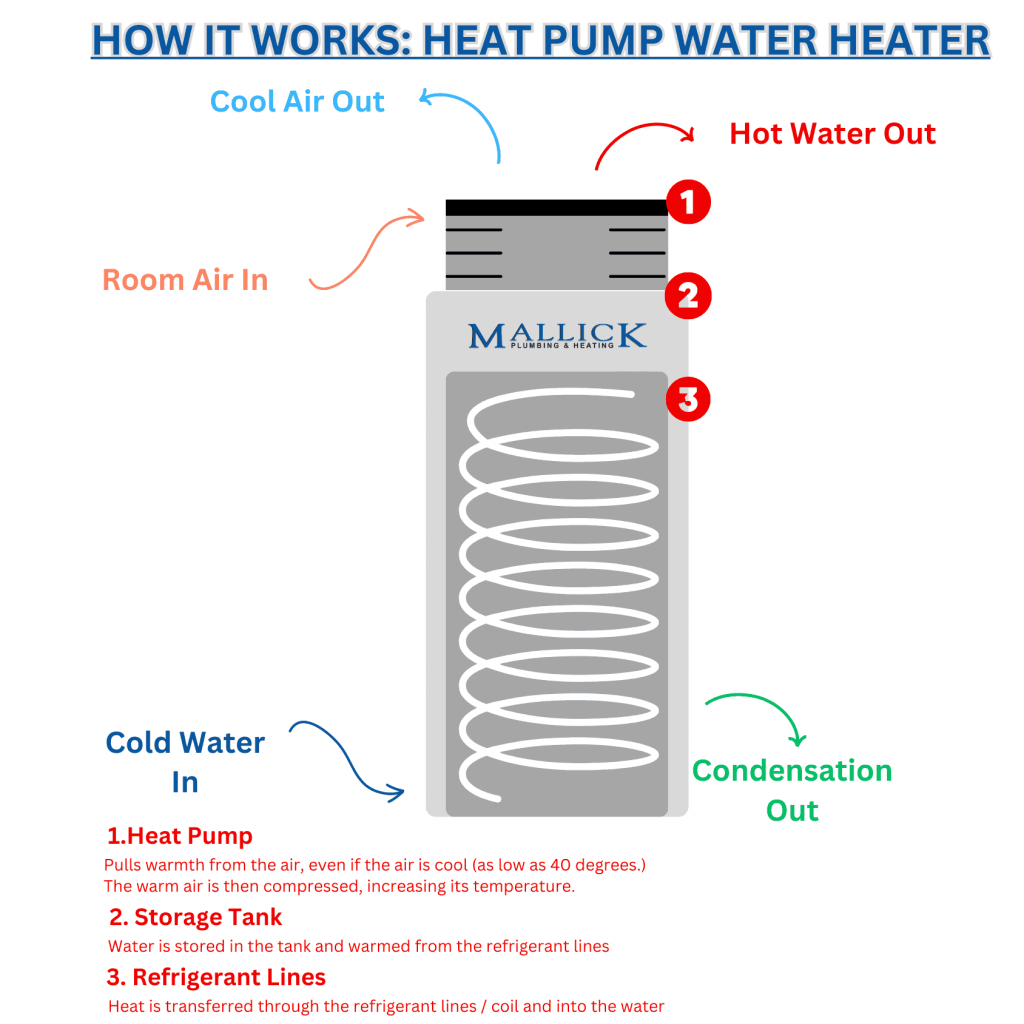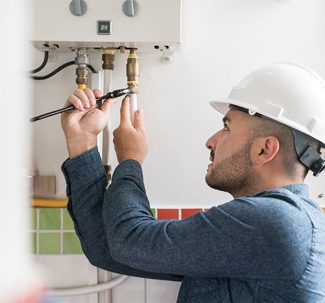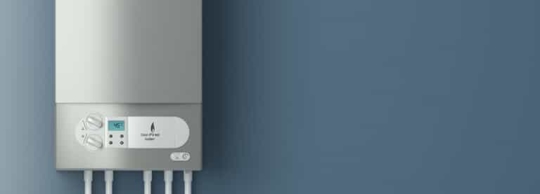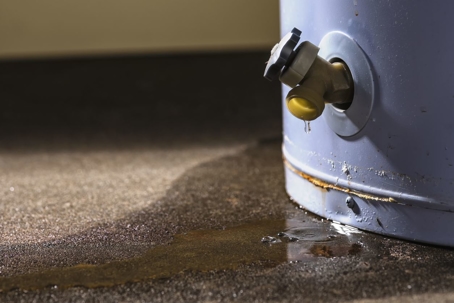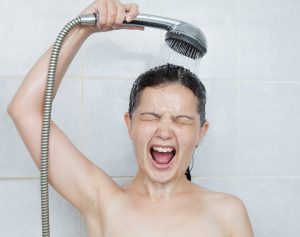Investing in a Tankless Water Heater has proven to be a game-changer for many Gaithersburg and Maryland homeowners, providing a continuous and efficient supply of hot water while reducing energy consumption and saving valuable space.
However, like all appliances, proper maintenance for your Tankless Water Heater is essential to ensure its longevity and peak performance.
We will dive into everything you – a responsible homeowner – need to know about the maintenance recommended for a Tankless Water Heater to continue to run at maximum efficiency for a long time.
Mallick Plumbing & Heating Can Help, Call (301) 804-6759 Today!
1. Regular Descaling for Efficient Heating
Descaling your Tankless Water Heater is a crucial maintenance task for Tankless Water Heater. As water passes through your heat exchanger within your unit, mineral deposits and scale accumulate over time, hindering the heating process and reducing efficiency.
Just as a standard water heater should be drained at least once a year due to sediment build-up, Tankless Water Heaters should also be descaled annually. This can sometimes depend on your water quality and your home’s location.
2. Regularly Check & Clean the Filters
Included in the Tankless Water heater is a screen or filter designed to prevent debris from entering the unit. Over time and as it filters more debris out of the water, these filters can become clogged, which can impact the flow and efficiency.
To ensure a steady flow of water and maintain performance, inspect and clean the filters every few months or recommended by the manufacturer or plumbing professional.
These filters can be easily removed, rinsed through running water until they are clean with no visible debris and properly reinstalled.
3. Inspect Your Tankless Water Heater for Leaks
Leaks, no matter how small, can waste water, cause damage and lead to costly repairs. By taking a few minutes out of your day occasionally, you can ensure your Tankless Water Heater has no leaks.
If you do notice any leaks, it is important for you to address them as soon as possible. You can accomplish this by immediately shutting off the water to your home and calling your local licensed and insured plumber to come fix the leak.
4. Clear Intake and Exhaust Vents
Proper ventilation is crucial for a safe and efficient operation from your Tankless Water Heater. As a Gaithersburg or Maryland homeowner, you should ensure the intake and exhaust vents are free of obstructions, debris or any object that could hinder the airflow.
By taking time to inspect these areas and clean the vents, you can prevent potential issues with the unit’s performance and ensure it is running on all cylinders.
5. Call a Local Plumber to Inspect Your Unit
While homeowners can perform a few crucial tasks, professional plumbers can provide another level of expertise with a thorough inspection. Trained technicians – like the ones we have at Mallick Plumbing & Heating – have the tools and expertise to inspect your Tankless Water Heater and provide any needed maintenance for it to operate at peak performance.
The plumbing technician can also clean your unit, complete a safety check and address any potential issues you may be expected to come across.
Call Mallick Plumbing & Heating at (301) 804-6759 to have your Tankless Water Heater inspected.
Regular home maintenance includes the crucial task of maintaining your tankless water heater. By regularly descaling the unit, checking the filters, inspecting the unit for leaks and ensuring proper ventilation, you can keep your Tankless Water Heater energy efficient and running for year.
If you’re ready for a professional to inspect your Tankless unit, you can rely on experienced plumbing like Mallick Plumbing & Heating. Their expertise will keep your heater in top-notch condition but also save you money in the long term by maximizing its efficiency and preventing any costly repairs.
Call Mallick Plumbing & Heating today at (301) 804-6759 to speak with a team member!

